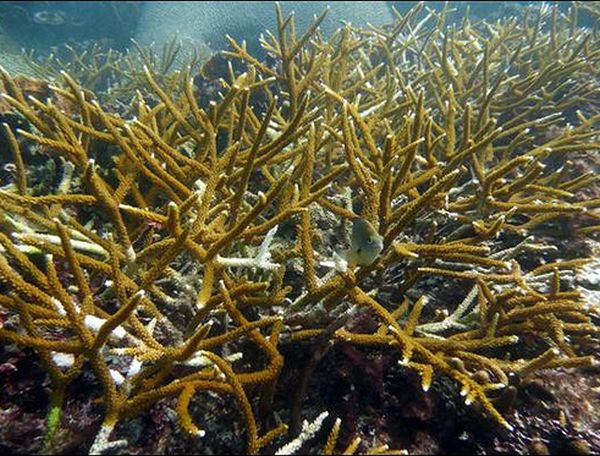A study led by researchers Katie Cramer and Jeremy Jackson has now offered the world clearer insight into the reason for disappearing coral reefs across the globe. While their study was based in the Caribbean region and concentrated on the mass decline of Caribbean coral reefs in particular it safe to assume that many of their findings can be extrapolated with due care to other coral ecosystems across the globe. While global warming and growing atmospheric carbon that eventually finds its way into the oceans are still partially responsible for the coral decline, the main culprits in case of the Caribbean are deforestation and overfishing.

The study was conducted in an extensive fashion by digging through various reefs to observe the timeline in decline of the coral reefs. Both healthy and declining reef samples from as back as 1800 were dug out and examining showed that with cleared coastal forests the accumulation of silt, pollutants and land nutrients that run into the ocean. Also overfishing has led to drastic decline in reef fish that feed on algae. This led to an increase in algae, which cover the reef surface and prevent further coral growth.
This obviously put the blame right back on us and this time, those in local administration cannot pass the buck by saying that they cannot help with reef protection since global warming and carbon emissions are not under their control. This also puts the local denizens in spotlight as both overfishing ad deforestation are a direct result of human action. The Caribbean islands do have very limited resources and it is understandable that the locals have cleared some of the forests for agriculture. But by overdoing it, they are destroying the beautiful reefs that are a key to their large tourism revenue.
Larger species of oysters and clams have largely vanished in the five or six decades and non-branching corals have replaced branching coral species, leading to further reef decline. The research shows that if we can educate the locals and help them realize the importance of their reefs for their economic and ecological sustenance, then it might still not be too late for a grand revival.
Via: UCSD




